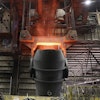Are you properly recognizing your employees? Most managers aren't. And when employees who deserve recognition don't get it or have to ask for it, it takes away their excitement and passion for the job.
The problem is, most managers and supervisors don't know when or how they should recognize or reward employees. And that's a shame. It's a manager's job to recognize when an employee is exceeding expectations; rewarding the employee tells him that you're paying attention and that you want the good work to continue.
This concept wasn’t as important when the workplace was more industrial. We didn't think about motivating employees—we wanted them to show up, do their job and not ask questions. But that's all changed in our knowledge based workplace, where innovation, creativity and teamwork rule. We can't mandate those behaviors, but we can encourage them by creating a work environment where employees want to go beyond expectations. What do employees want in return? Surprisingly, it isn't just money. It's also an acknowledgement and an appreciation of the time, thought, effort and energy they have given to the job.
Many of today's workers are from the younger generations and expect to be more emotionally connected with their job. They don't expect to stay with one company for their whole career, so they're willing to look around at other opportunities. What keeps them loyal is not just a salary—it’s job satisfaction. So when they do their job well, and no one notices or recognizes their efforts, they'll leave—maybe giving you two weeks’ notice.
To be truly effective, recognition must have these aspects:
- It must be immediate. Too many managers make the mistake of waiting to recognize an employee during a performance or salary review. That's too late. Recognition should take place right away, even if the initial step is only verbally commending the employee. Employees who have exceeded expectations should never have to ask or wait for that accomplishment to be noticed.
- Recognition and reward must be based on the individual. Some employees would love to be acknowledged in front of their workgroup for their achievements. Others may feel embarrassed. Some employees might love a reward in the form of tickets to a baseball game. Others hate baseball but might prefer a gift certificate to a nice restaurant. To truly show appreciation for your employees' work, you have to reward them in an individual way, showing that you have paid attention to their preferences.
- Rewards must be substantial. Companies often give a small salary increase above average and call that a reward. You can guess what I call it. When you give an exemplary employee an increase that's only ½ to 1 percent more than everyone else gets, that doesn't make the employee feel rewarded. In fact, all it does is make the exemplary employee angry. Any increase less than 10 percent is a de-motivator. And, as mentioned before, the reward should be given right away, not at the end of the year.
It's simple really. Behavior that gets rewarded properly gets repeated. In order to make this happen, your departmental budget should include a discretionary fund so that managers can immediately recognize and reward deserving employees. Hold your leadership team accountable—they must look for opportunities to recognize and reward employees who are setting the bar.
Your employees shouldn’t have to ask for recognition. Those who do will be disappointed that their efforts don't seem to matter, and those who don't will absolutely be looking elsewhere.






















